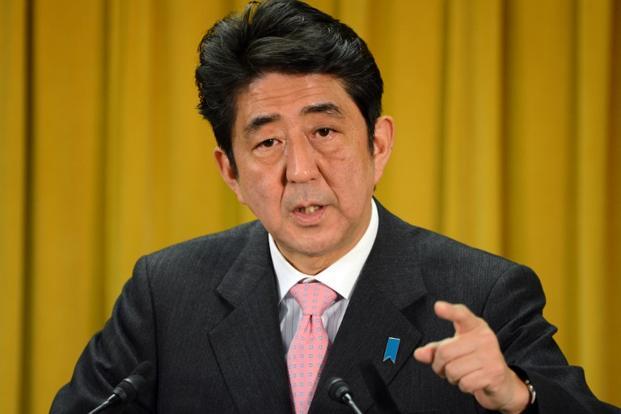
Is Abe’s ‘Soft Spine’ toward the US Just a Ploy?
(China) on 7 August 2015
by Xiong Dayun (link to original)
The domestic response came in the form of the Japanese opposition camp expressing extreme indignation at such submissiveness and widespread dissatisfaction among the general population, with some website users scornfully remarking that Japan had been “neutered” as a nation. Facing this surge of popular opinion, Abe had no choice but to hold a phone conference with U.S. Vice President Joe Biden on Aug. 5 to express his “protest” at the wiretapping.
Japan is not the first U.S. ally to have its leaders monitored in such fashion. German Chancellor Angela Merkel, French President Francois Hollande, and Brazilian President Dilma Rousseff issued statements strongly condemning the spying as soon as it was discovered that they had been targeted. So why has Abe, who has always made a point of showing strength toward regional neighbors, now lost his backbone? According to the observations of this author, Abe's “spinelessness” when it comes to the United States is likely a result of the following three factors.
First is the need to prioritize his guarantee to pass security-related legislation. As everyone knows, bolstered by the ruling coalition's absolute majority in the Japanese Diet, Abe guaranteed to the U.S. Congress during his visit to the United States in May that he would pass security-related legislation before the end of the year, enabling a “seamless response” between the Japan Self-Defense Force and U.S. military and turning Japan into a comprehensive war machine capable of following the United States in and out of battle around the world.
However, the security bill hit a roadblock in Japan due to resistance from the opposition party, the majority of academics, and more than 60 percent of the general population. In a country where large-scale gatherings have been rare over the past several decades, there suddenly appeared a succession of marches and demonstrations to demand that the security legislation be scrapped. Although Japan’s House of Representatives powered the bill through, it had yet to gain the approval of the House of Councillors, an endeavor that was already shaping up to be a spectacular fight. It was at this junction that the news of U.S. wiretapping appeared out of the blue to throw another wrench in Abe's plans. If Abe were to make a show of strength toward the United States, it very likely would have affected the security legislation that his party was putting all its efforts into passing, leaving the prime minister with little choice but to try to play things down.
Second is that the United States and Japan have a tacit understanding of each other’s calculus. As all are aware, the alliance between the two nations was originally built upon the unequal relationship that followed Japan's defeat in World War II and the U.S. military's subsequent occupation of the country, and from the very beginning the two nations each had their own separate objectives. That situation has continued to unfold to where we are today. As the United States wishes to maintain control over East Asia (or even all of Asia), it needs Japan to be its muscle in the region, but at the same time, the United States also needs to watch Japan closely lest the island nation's growing power embolden it to turn against its wartime adversary once again. On the other hand, Japan will depend even more upon the might of the United States to fulfill its desire to maintain its prestige as the dominant power within Asia. While a subconscious impulse to cast off U.S. control exists within the very bones of Japan, until such a time as it is powerful enough to do so, it still needs U.S. support. This sort of latent conflict, with the United States and Japan both using each other while not letting down their guard, necessitates that on the surface they make a show of joining hands, but also that they never cease probing for what cards the other has hidden. As an old hand at the final table, Abe knows how the game is played and that such goings-on are common for both parties, and consequently he doesn't feel compelled to kick up a fuss. Much better to simply smooth things over and drop a few innuendos around the subject, all with the understanding that in the future, well, you gotta do what you gotta do.
Third, one cannot exclude the possibility that Japan is quietly biding its time, absorbing such slights and only momentarily feigning anger to win even greater trust and support from the United States in service of something greater. There is a well-known story in Japan regarding the “47 ronin,” loyal samurai who seek revenge for the unjust end brought upon their master by silently enduring humiliation and even feigning madness in order to deceive the enemy, successfully accomplishing their sworn purpose in the end. This story was later rewritten into a television drama that became popular throughout Japan, and has been called a classic example of Bushido loyalty. For Abe, who is himself a fervent admirer of the Bushido code, such Dantèsque patience should be within his blood. When his typical modus operandi is to not allow even the smallest of slights to go unpunished, who yet knows but that his swallowing his anger today may be a small sacrifice in order to realize some grand design. As for what exactly that grand design may be, I fear his ambition makes it only all too clear.
The author is a scholar living abroad in Japan.
